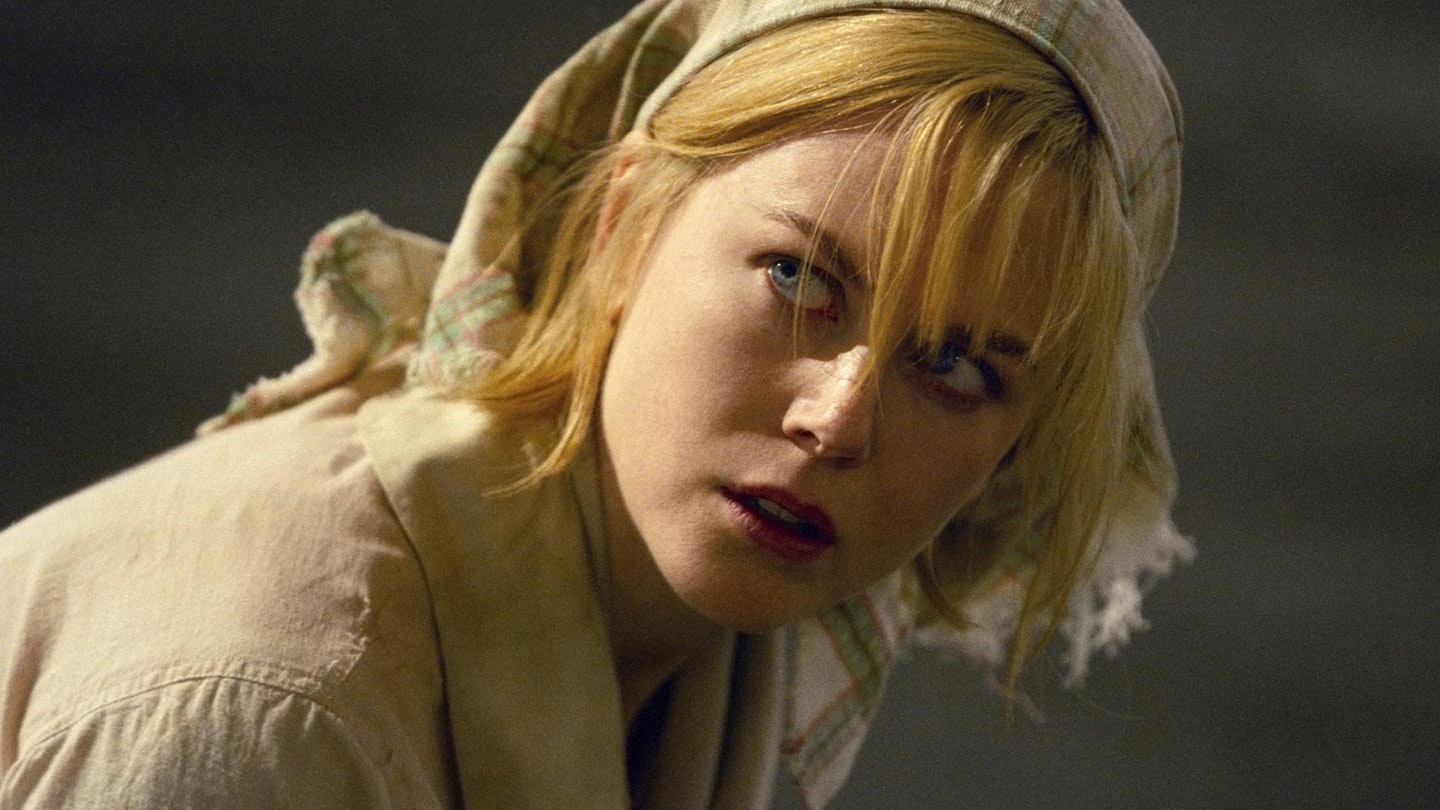Forget the detailed locations of The Lord Of The Rings or the built-to-scale replica of 19th century Manhattan in Gangs Of New York. All you need to reconstruct a Depression-era town in a remote corner of America are a few white lines on a black floorà but only if you possess the artistic daring of Lars von Trier.
Stylistically, the shadow of playwright Bertolt Brecht looms large over Dogville, and not just because the story is inspired by his song lyric, Pirate Jenny. Von Trier approaches his latest film like a Brecht play, adhering to the German's theories in near-textbook fashion by always emphasising the artifice and theatricality of the action.
Von Trier's detractors – and there are many – will argue that this is nothing more than filmed theatre. On a very basic level, perhaps so; although if this cast were assembled on Broadway or in London's West End, the show would be a complete sell-out months in advance, so we should be thankful for any opportunity to share the experience. But Anthony Dod Mantle's digital video camera isn't simply documenting a performance. It restlessly and fearlessly intrudes into this place and into these lives. Its close-ups – capturing key emotions as they flicker across the characters' faces – are vital to describing the moral arc of the story. This is something that can only be achieved cinematically, an intensity that's impossible to render elsewhere, not even from the front row of a playhouse's stalls.
The bare 'stage' on which von Trier presents his action is also thematically relevant. If Dogville brings to mind another play, it is Thornton Wilder's Our Town, with its nostalgic chronology of a close American neighbourhood and its inhabitants. In Dogville, though, there can be no hiding place behind a white picket fence or a twitching lace curtain. Von Trier strips away walls, doors and windows. Later, he strips away the characters' niceties and social politeness.
When a rape occurs at an important point in the story, neither the viewers nor the Dogville residents – washing their hands of their guilt in the comfort of their own homes – are allowed any barrier to help them avert their eyes from the harsh truth. Everyone and everything is exposed for what it truly is inside.
Another criticism frequently flung at von Trier (and one that quite often sticks) is that his treatment of female characters is almost hateful. In Breaking The Waves, The Idiots and Dancer In The Dark, sexual humiliation, unjust suffering and heart-wrenching sacrifice are all in a day's work for his heroines. So too in Dogville, although after the townsfolks' betrayal of Grace (Kidman), this time there is a stronger sense of moral retribution on the guilty rather than on the innocent.
At the beginning of the film, Tom (Paul Bettany) is keen to prove that the values of a tight community are essentially good, and so persuades his neighbours to open their doors and their hearts to Grace while she flees from danger. Although America is a country that historically has prided itself on giving shelter to the oppressed, von Trier's attack on a society that will hypocritically exploit the weakest among it is surely aimed at a wider target than his supposed nemesis across the Atlantic. He is criticising anyone who knowingly turns his or her own disappointments and shortcomings into the persecution of an outsider.
In this light, Dogville raises issues that are perhaps more vital in today's world than at any other point in history, then presents them in an intellectually stimulating style. And so by all means argue that von Trier's latest is theatre and not cinema. But at least acknowledge that Dogville, in a didactic and politicised stage tradition, is a great play that shows a deep understanding of human beings as they really are.

